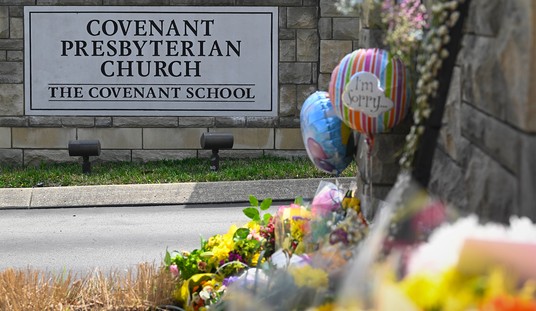In a matter of days, we saw three mass shootings transpire. Two in Virginia and one in Colorado but all three in states with red flag laws on the books.
Clearly, gun control didn’t help.
However, a pair of professors–one a law professor and one in political science–seem to think they know the answer.
In the wake of the recent tragic shootings at the University of Virginia, Club Q in Colorado Springs, and a Virginia Walmart, the same questions have been echoing in the public conversation: Why does this keep happening? And what can we do about it?
Advocates can seek and legislators can pass laws that attempt to address gun violence. But unless citizens are educated on how to use those laws to notify authorities and prevent tragedies, legislation is meaningless.
We study the passage of effective gun violence laws. We haven’t finished our analysis, but we have gleaned some insights along the way.
So they haven’t finished the study, but they already know the answers.
This isn’t surprising to me in the least, especially since I suspect they knew the answers going into it.
Now, in fairness, while it’s clear they’re focused on gun control, they do bring up a few key points that are worth discussing.
First, the data we reviewed shows that gun violence is less often connected to severe mental illness, and more frequently arises from depression, anger or despair. The combination of personal crisis and easy access to a firearm is a volatile one. And for every shooter whose act hits the news and traumatizes its victims, there are many more who turn their anger and despair inward. Sixty percent of firearms deaths are suicides, mostly by middle-aged white men.
OK, we know about the suicides, but these two seemingly argue that the mental illnesses existing within mass shooters is really just an expression of the same mental illness that drives people to take their own life.
The discussion of mental health in general is a useful one, but I’m thoroughly unconvinced.
Depression, despair, and anger may all exist, but let’s not equivocate all who suffer from those. Still, it’s worth talking about if only to suss out to what degree each of these exist in a single mass shooter as opposed to anyone else.
Had the discussion stayed here, I probably wouldn’t mind it so much, but it doesn’t.
We also get this:
Active shooter incidents are extreme and terrifying, and their occurrence is good reason to put gun violence prevention laws on the legislative agenda even if they are hard to prevent. But the laws can also help save the many lives that were secretly lost because of the stigma of depression.
So, their answer to addressing the “stigma of depression” is to legitimize it?
We’re talking red flag laws in particular here, after all, so what they’re saying is that this stigma is bad, so what we need to do is legislate things so that people can actually make those suffering from that condition feel even more isolated.
How is that not making the stigma worse?
Their solution is literally, “Your loved one is depressed and upset about stuff? Don’t focus on getting them help, just take their guns so they’ll have more reason to be upset.”
Yeah, that’s a winning combination.
Why focus on that when you could instead focus on trying to make it so people don’t want to kill themselves or murder dozens of innocent people?
People like this spend so much time looking at the gun that they forget about the people. Whether it’s willful or not I leave for you to decide.
Personally, though, I think that we’re wasting time with this nonsense. We can reduce so-called gun violence–all of it, not just the kind that makes headlines–and other forms of violence by looking at the roots of the subject.
It’s just too bad that the people who could do such a thing are too focused on gun control.








Join the conversation as a VIP Member